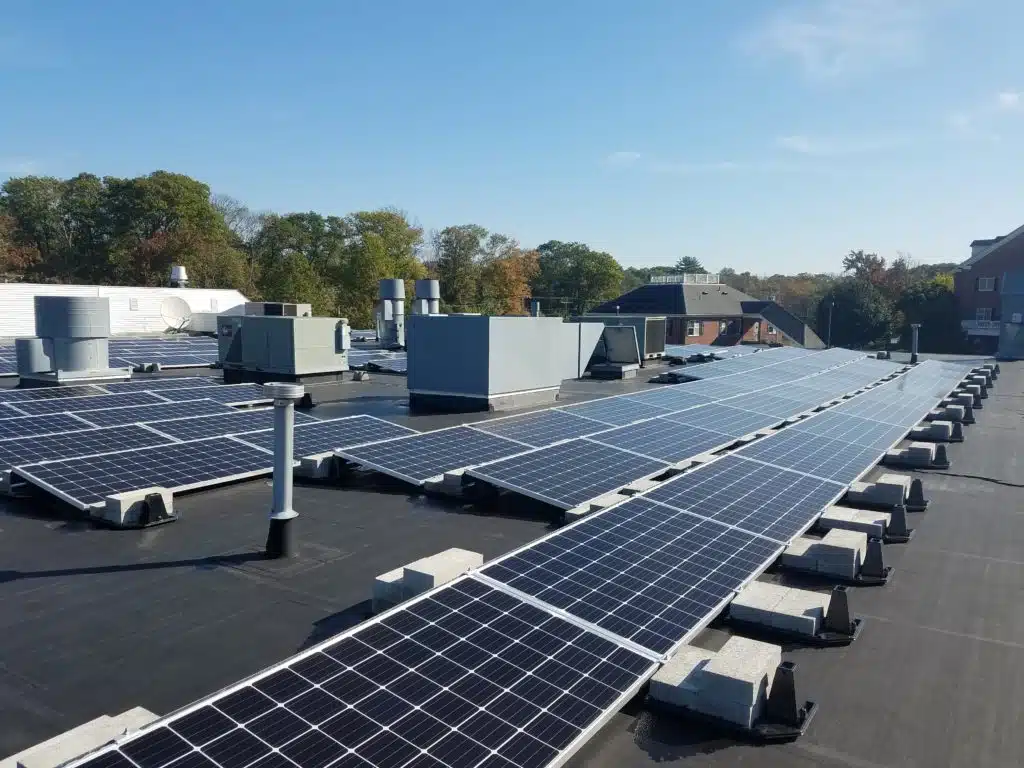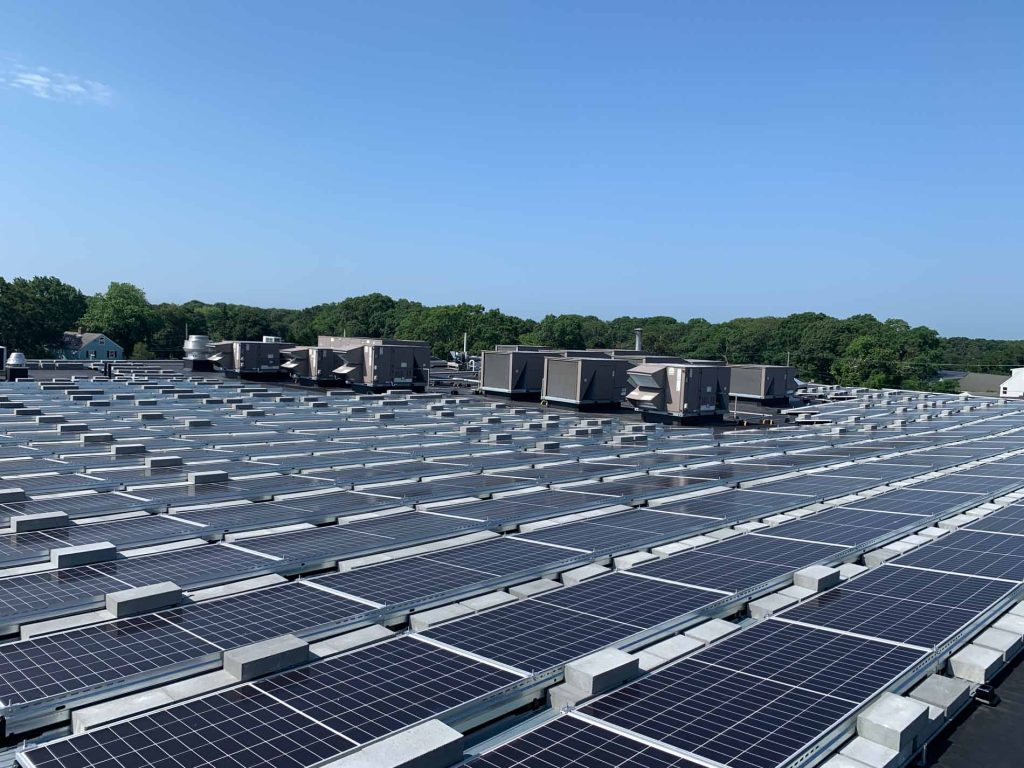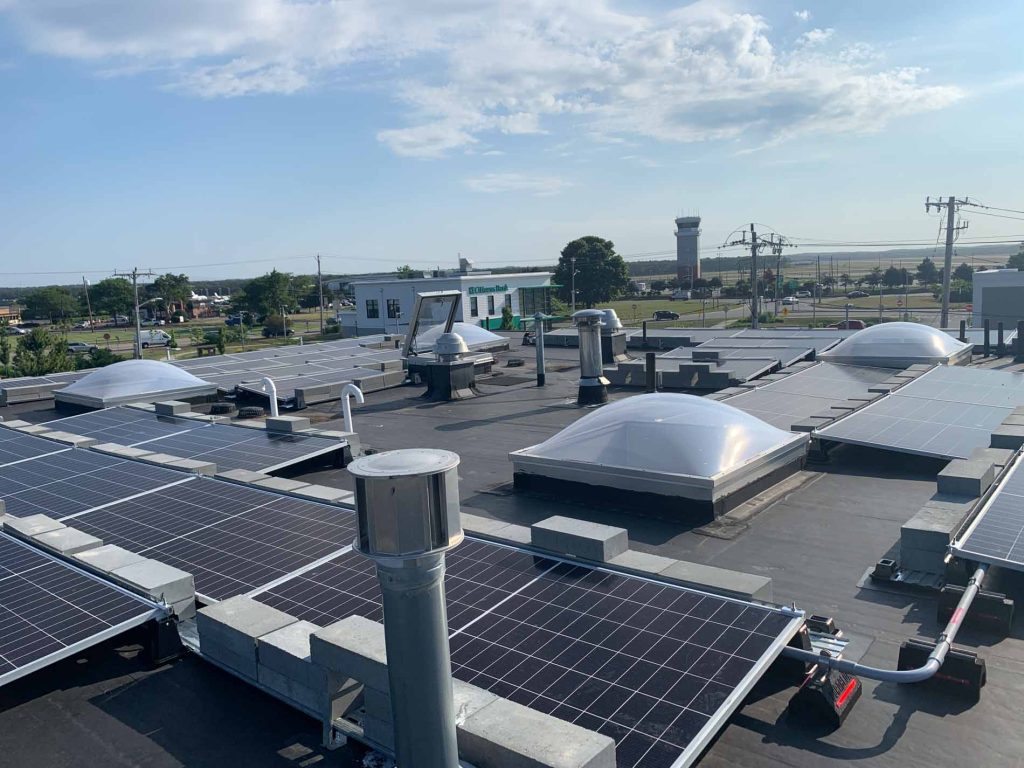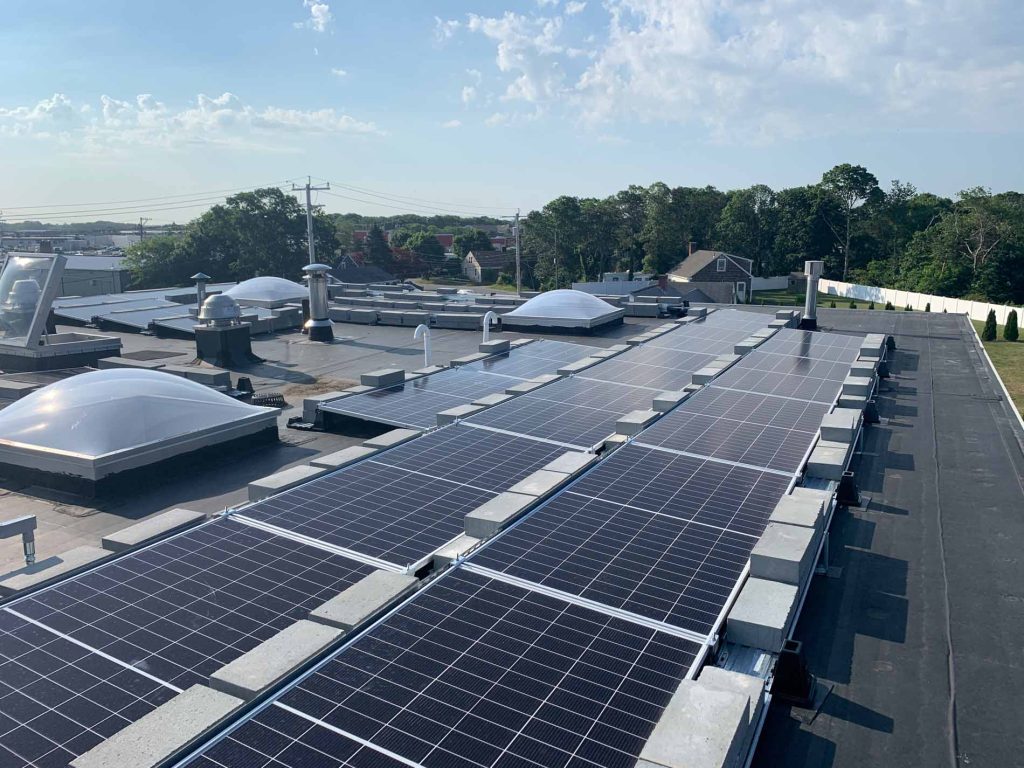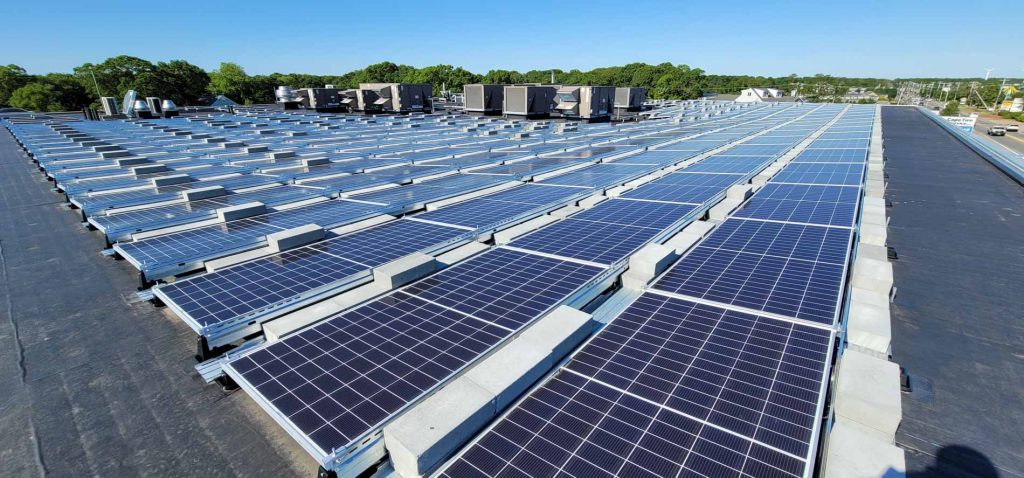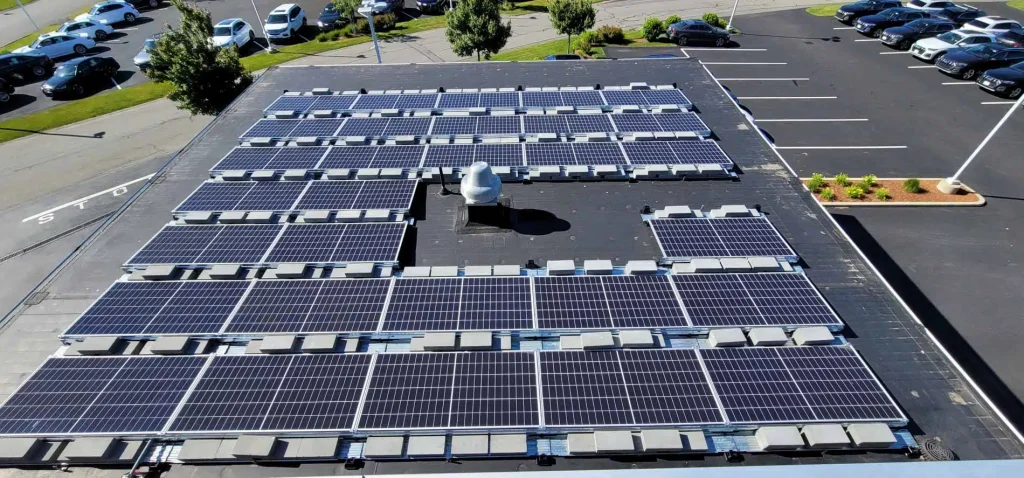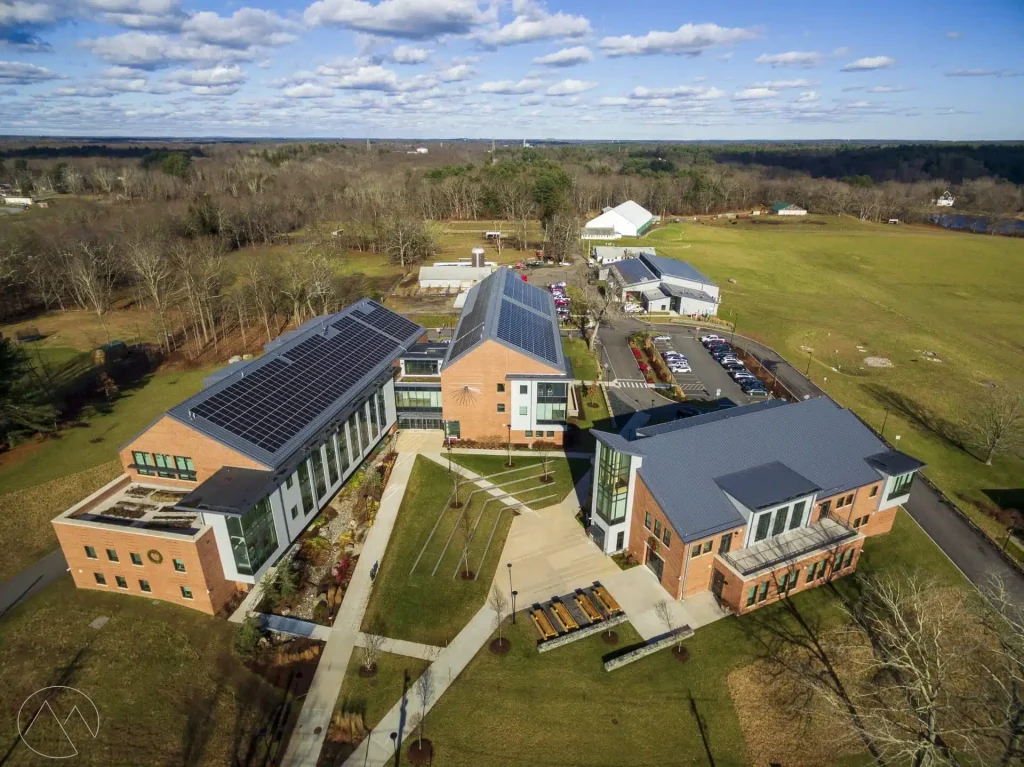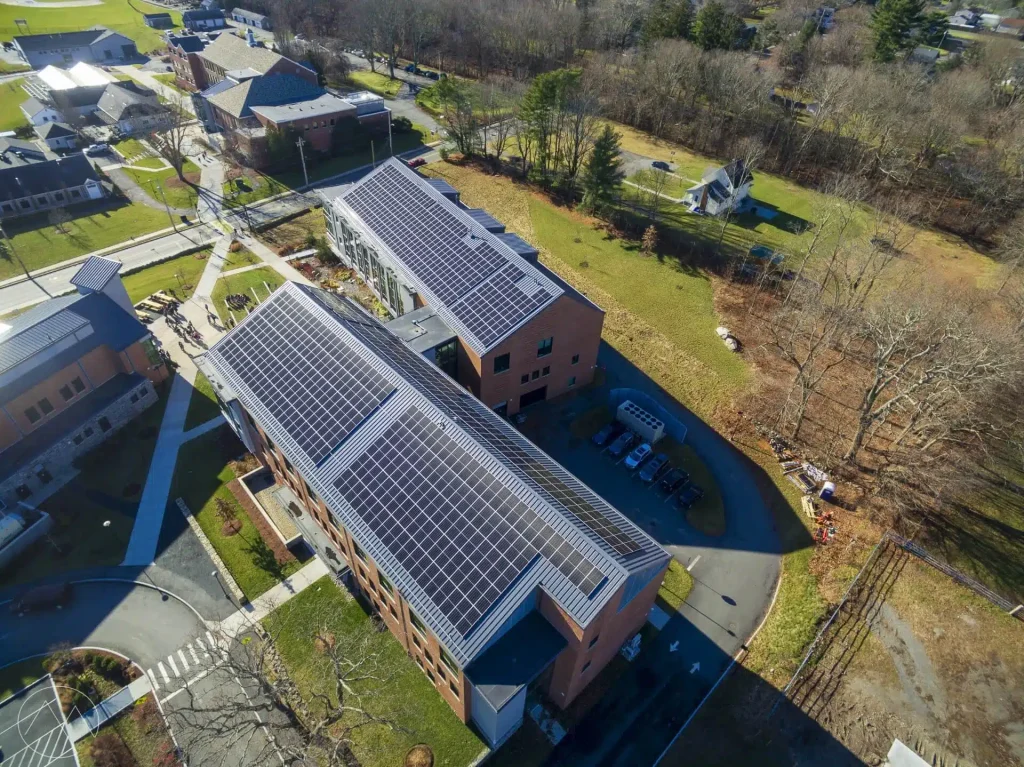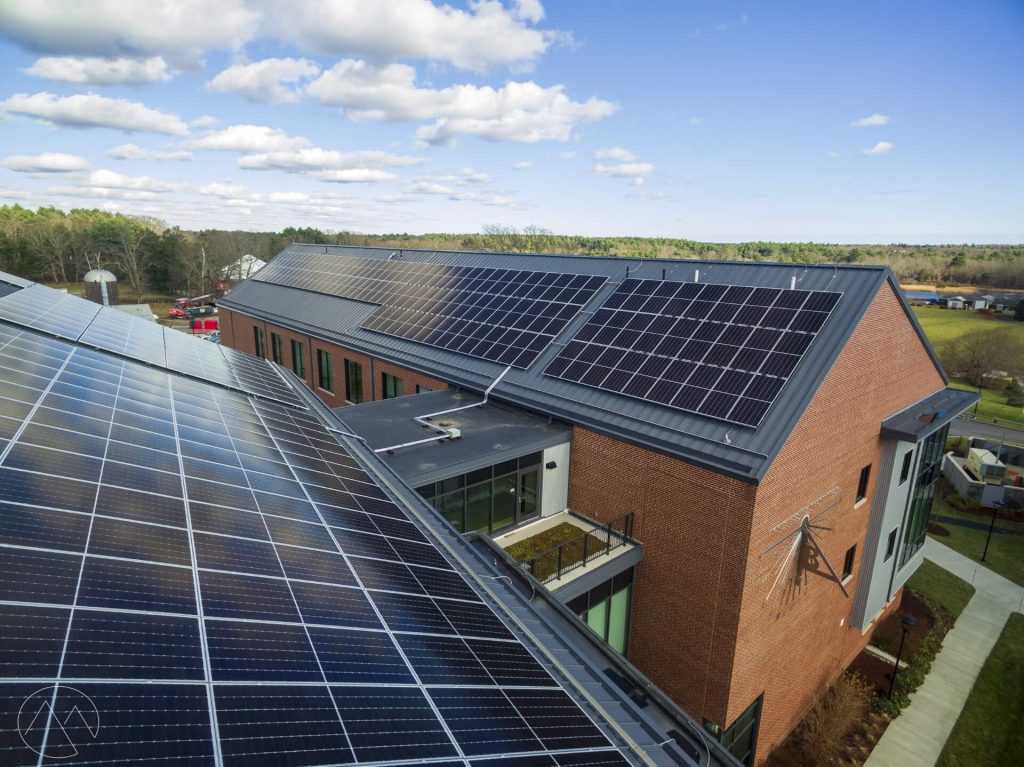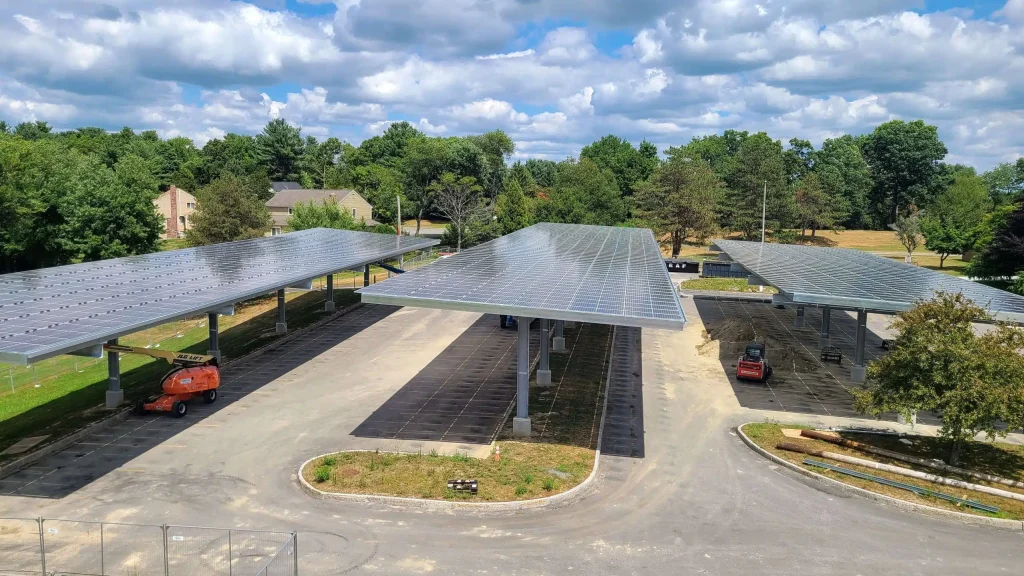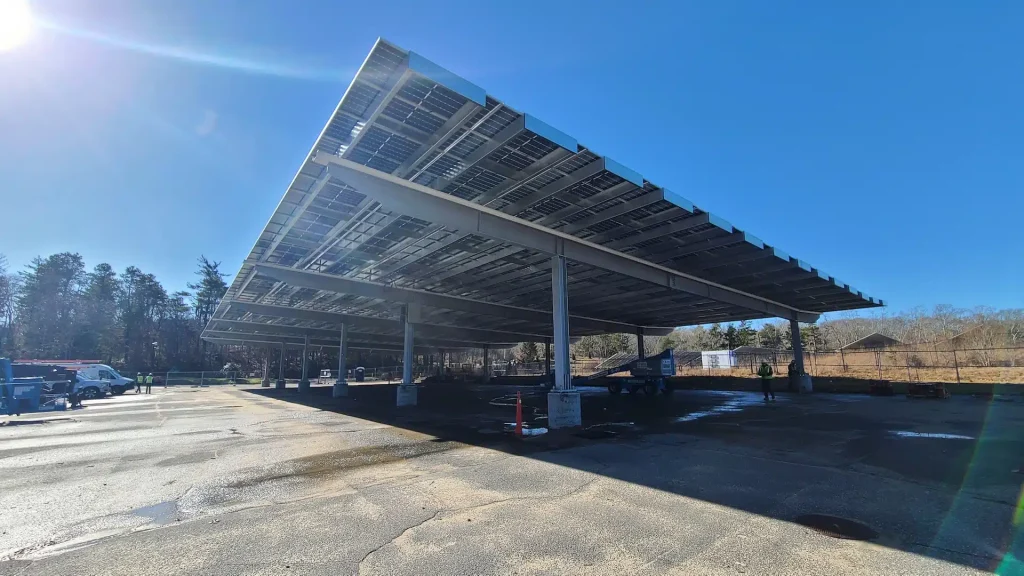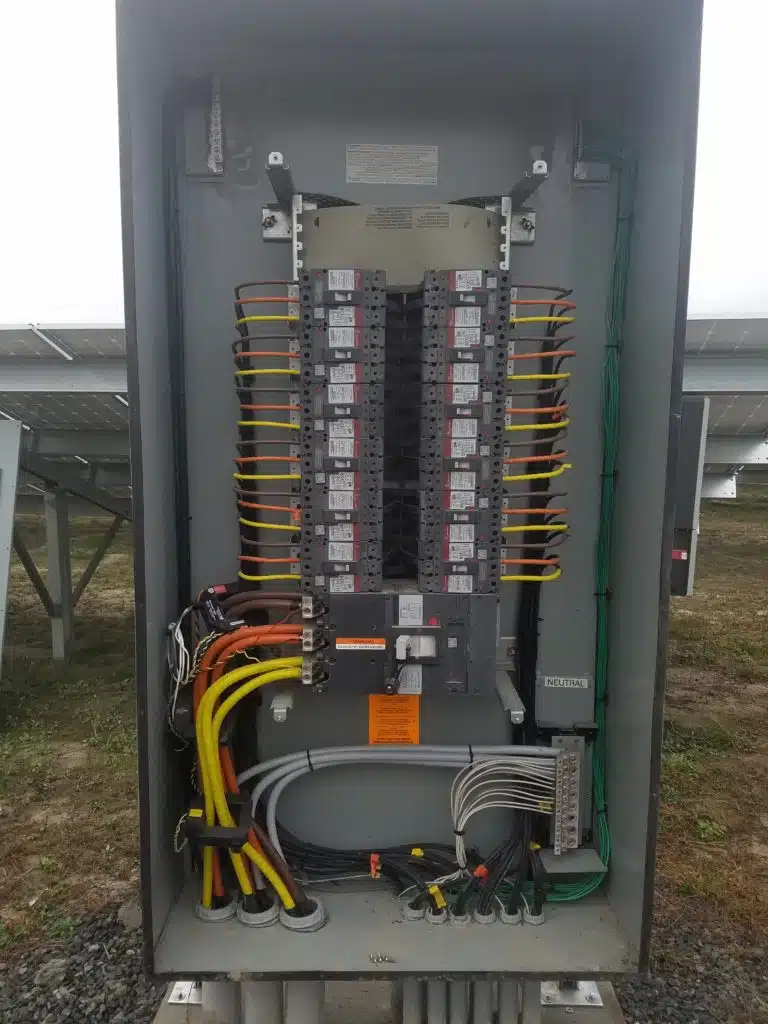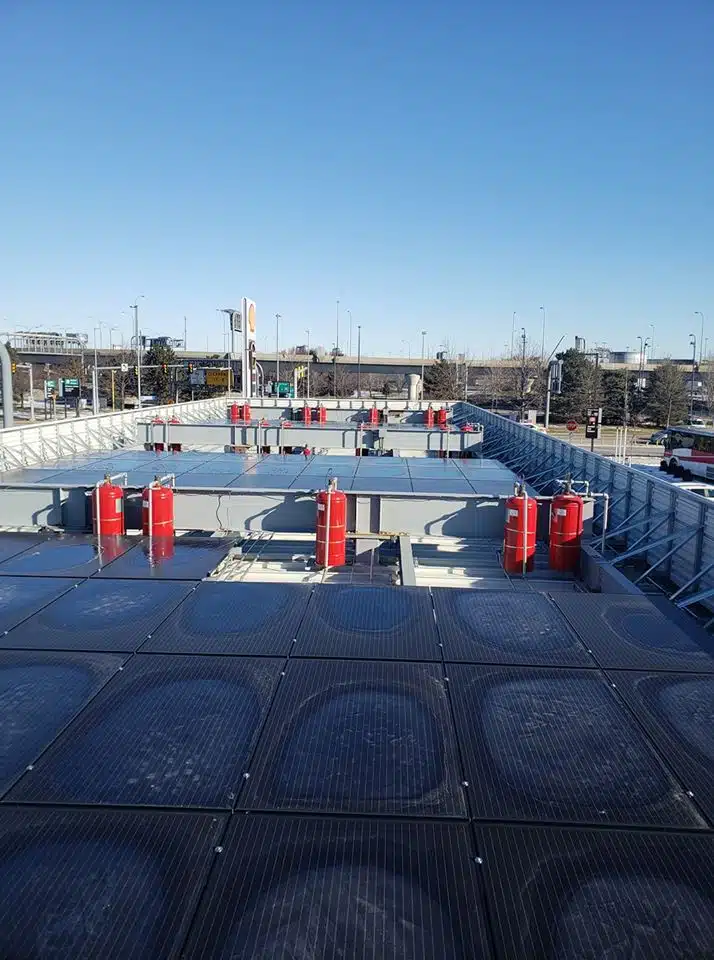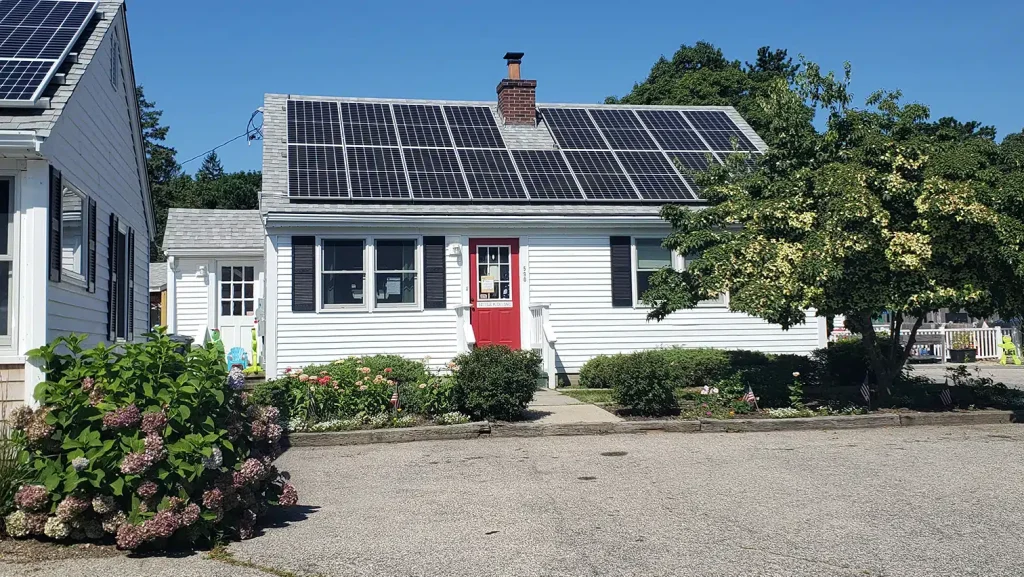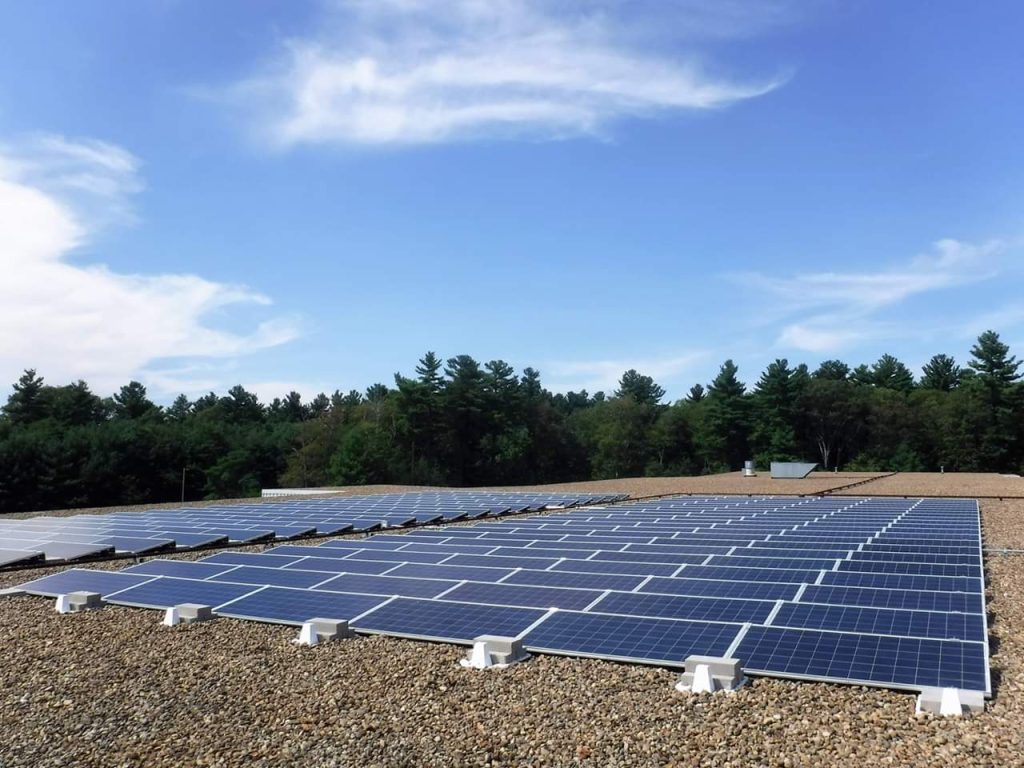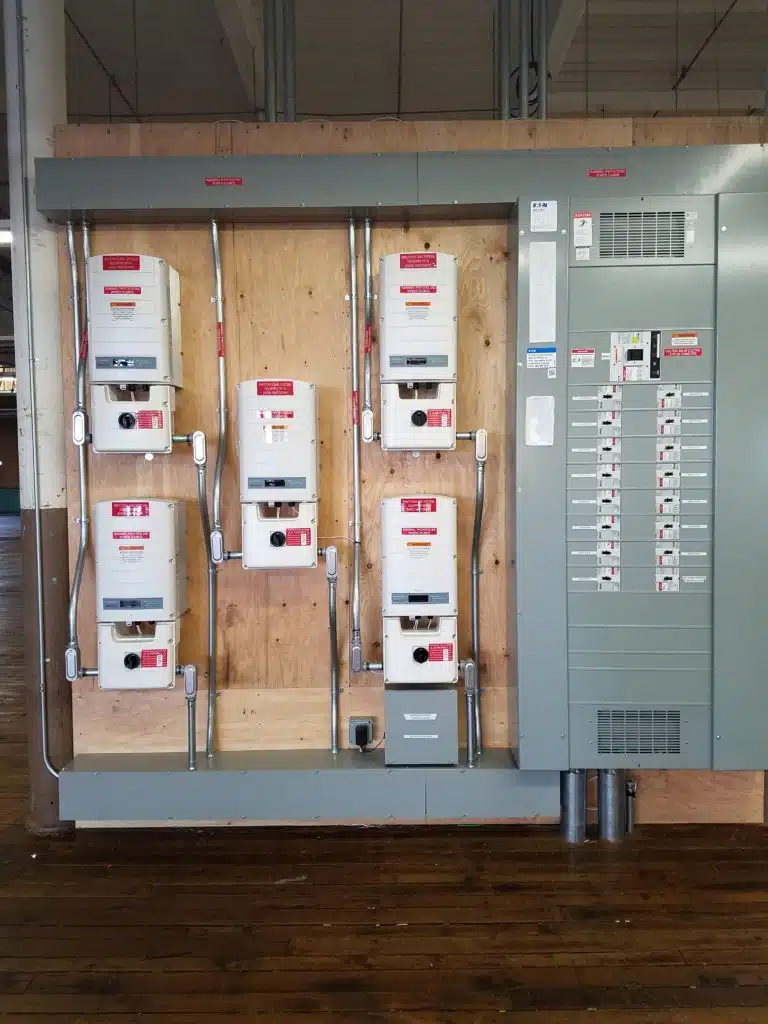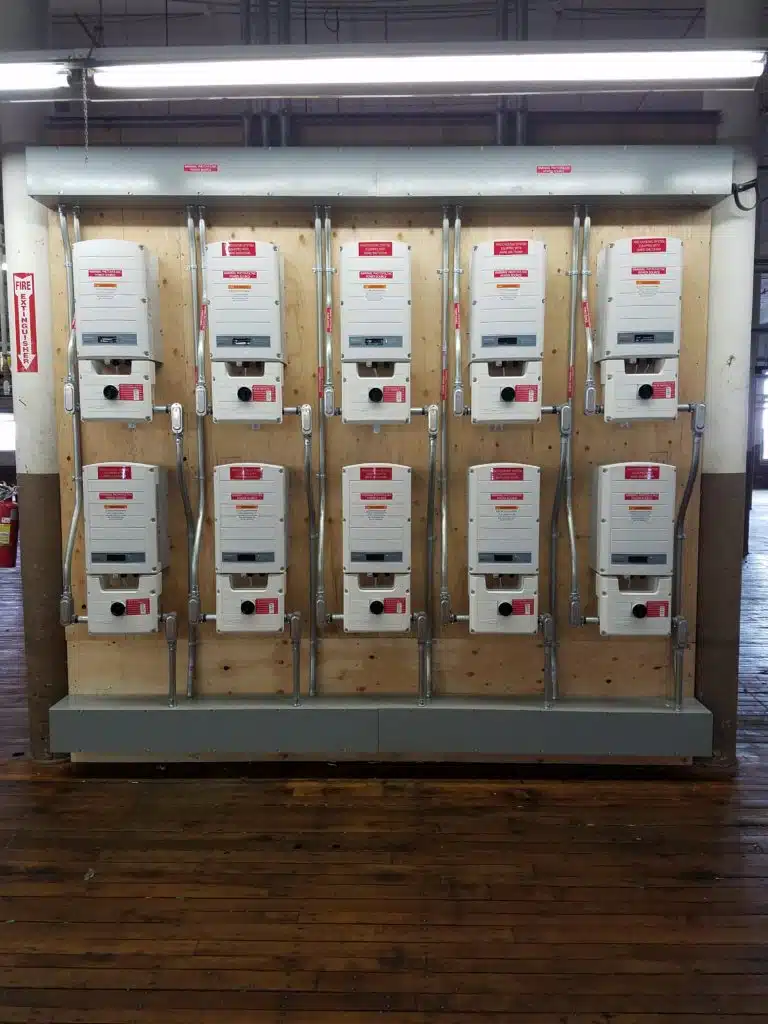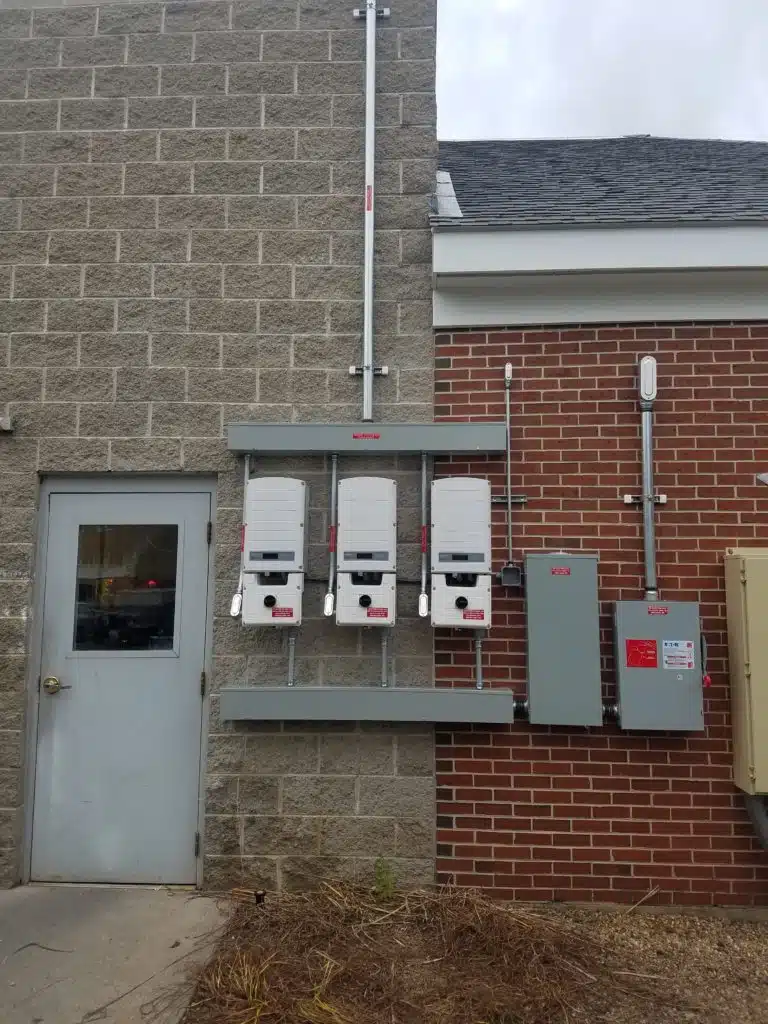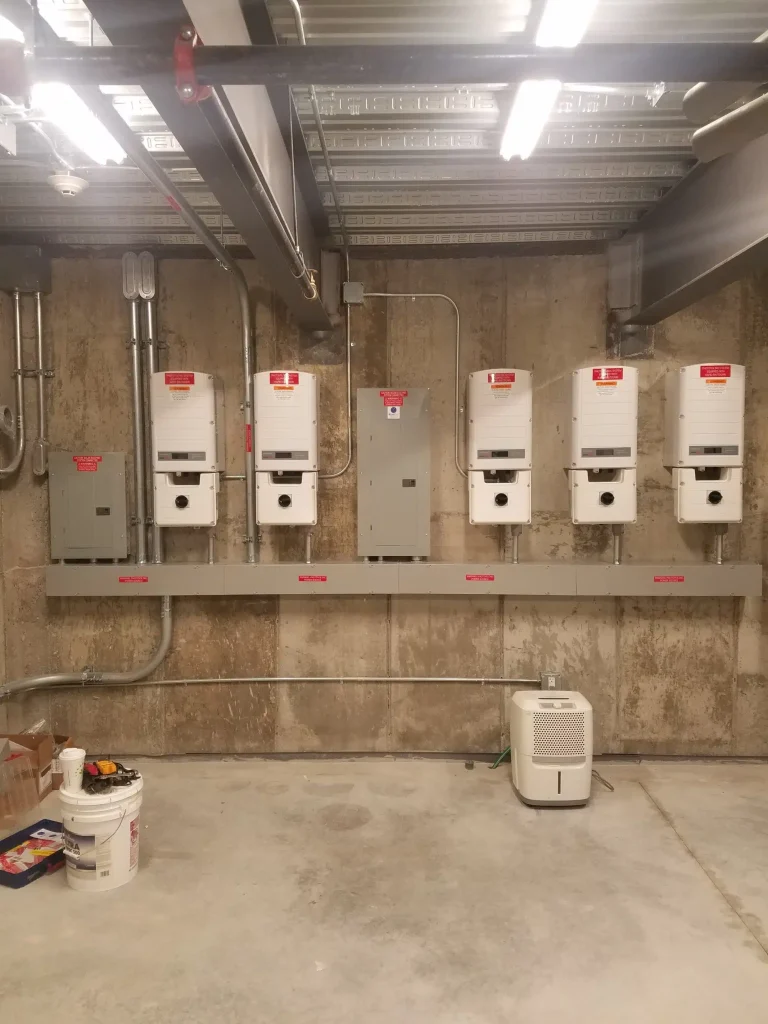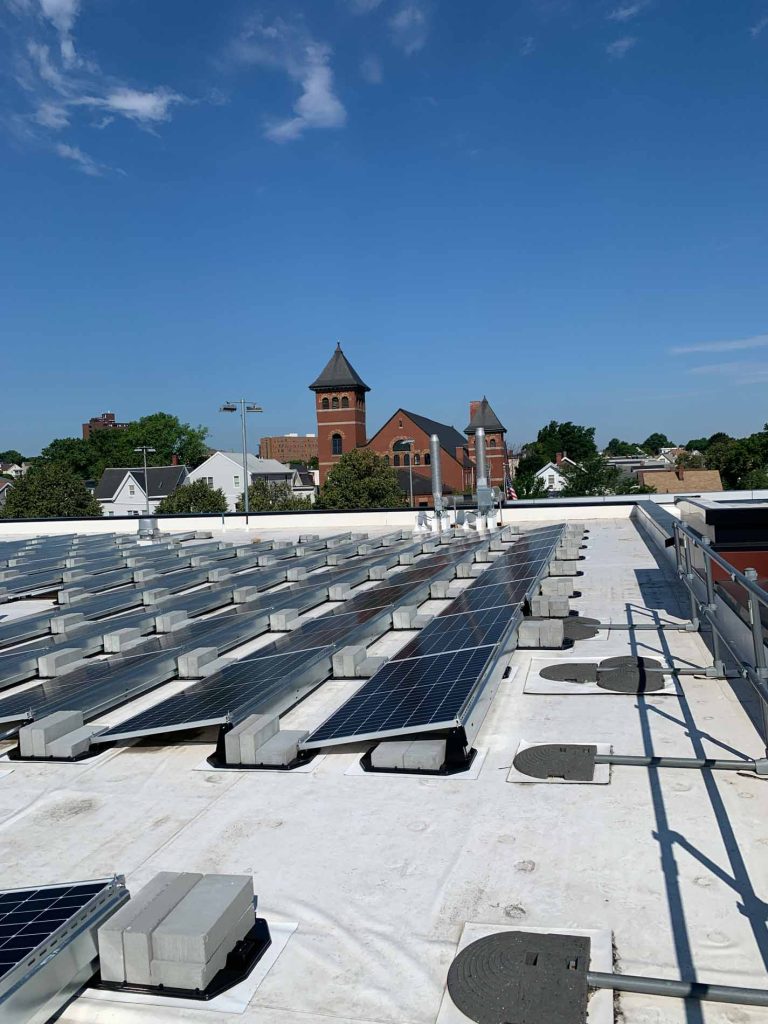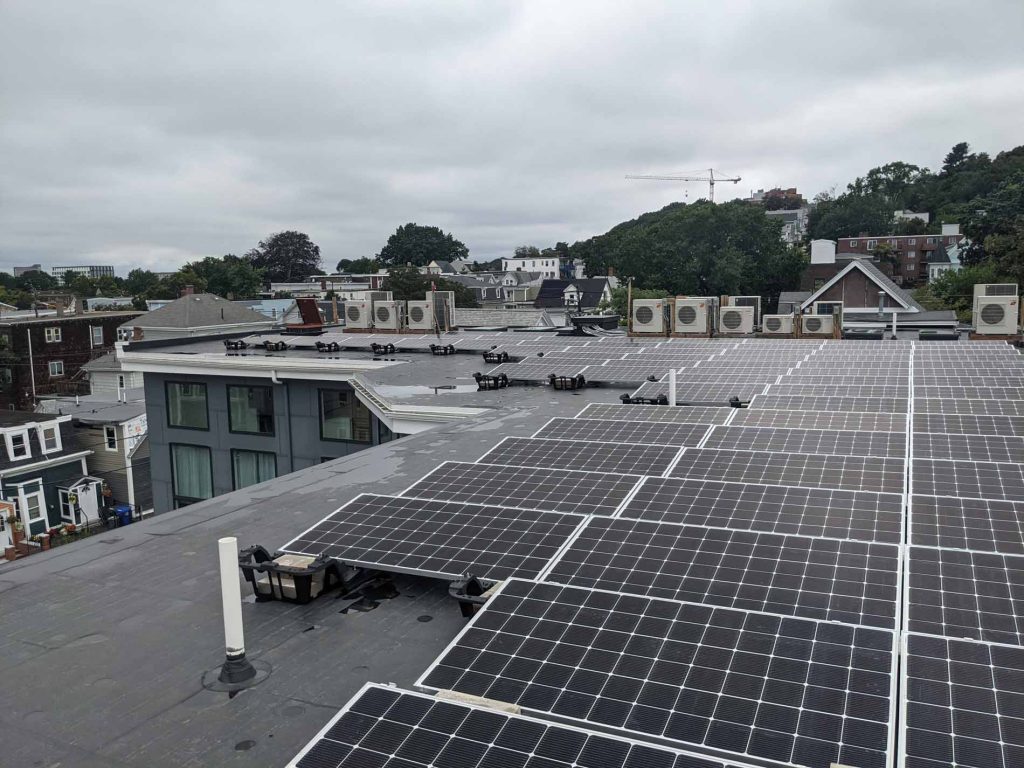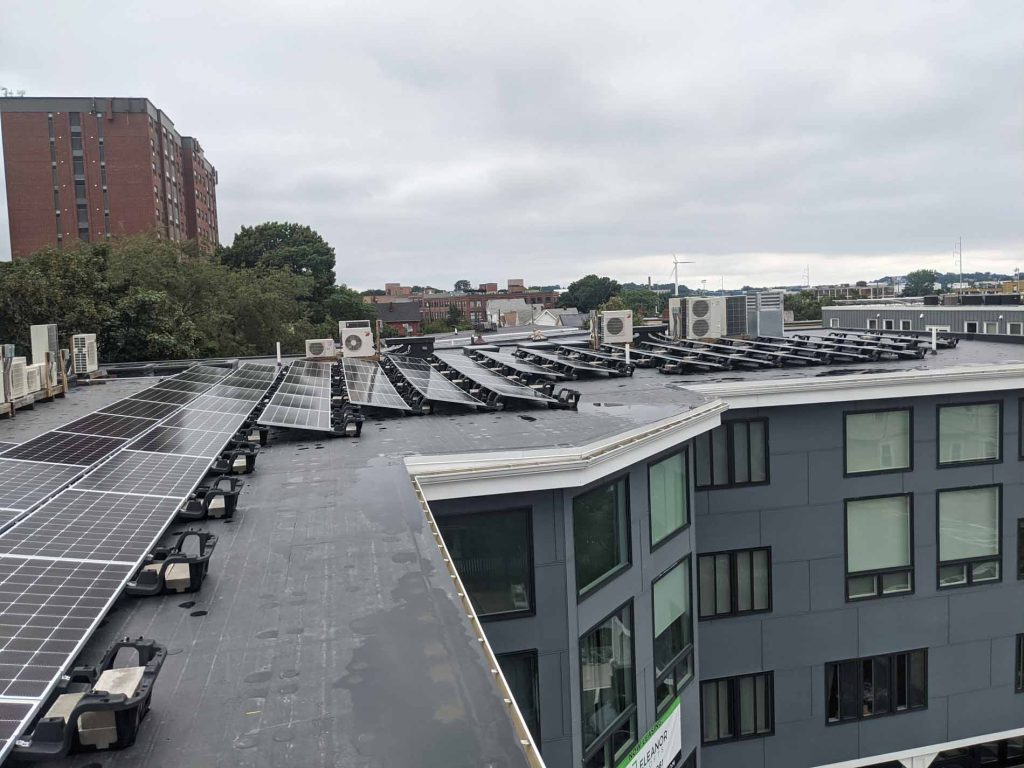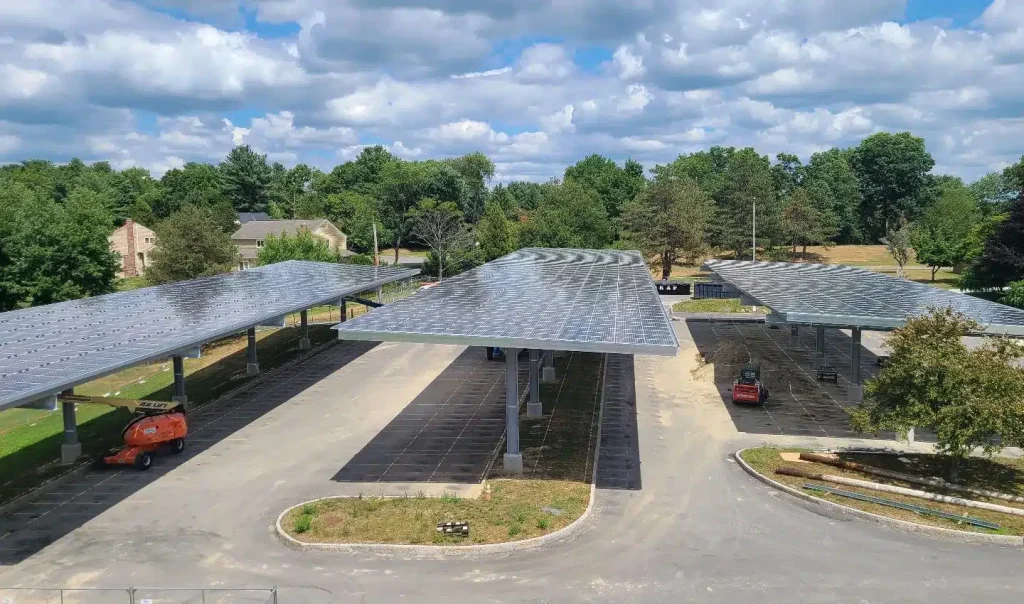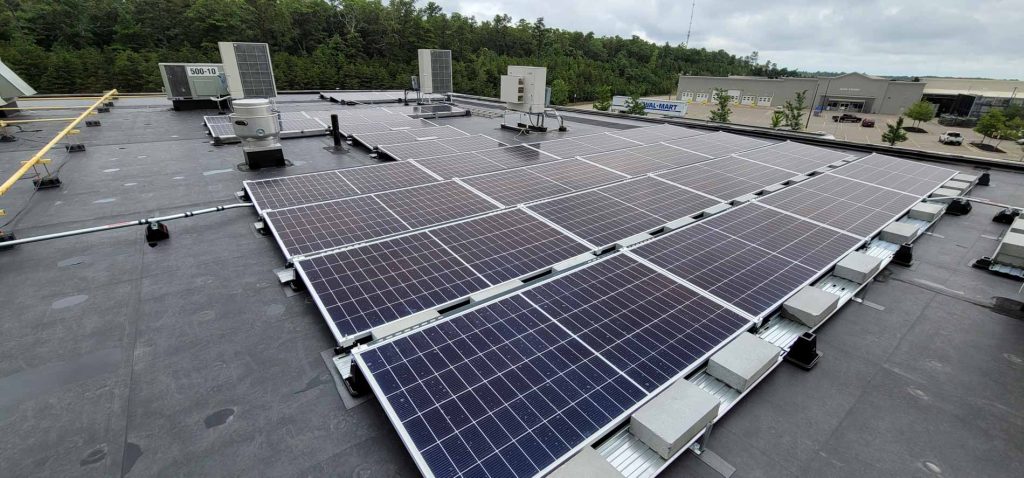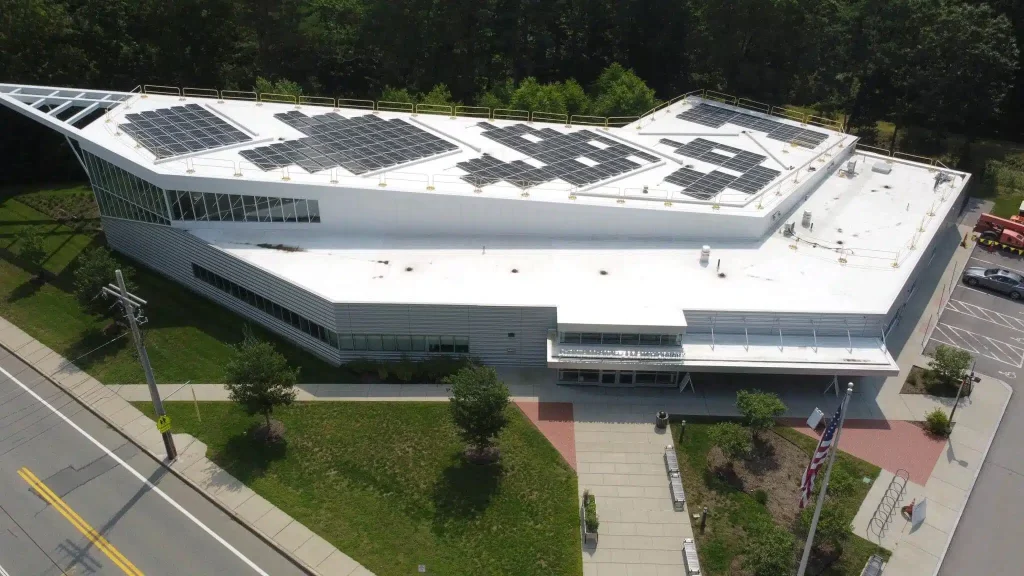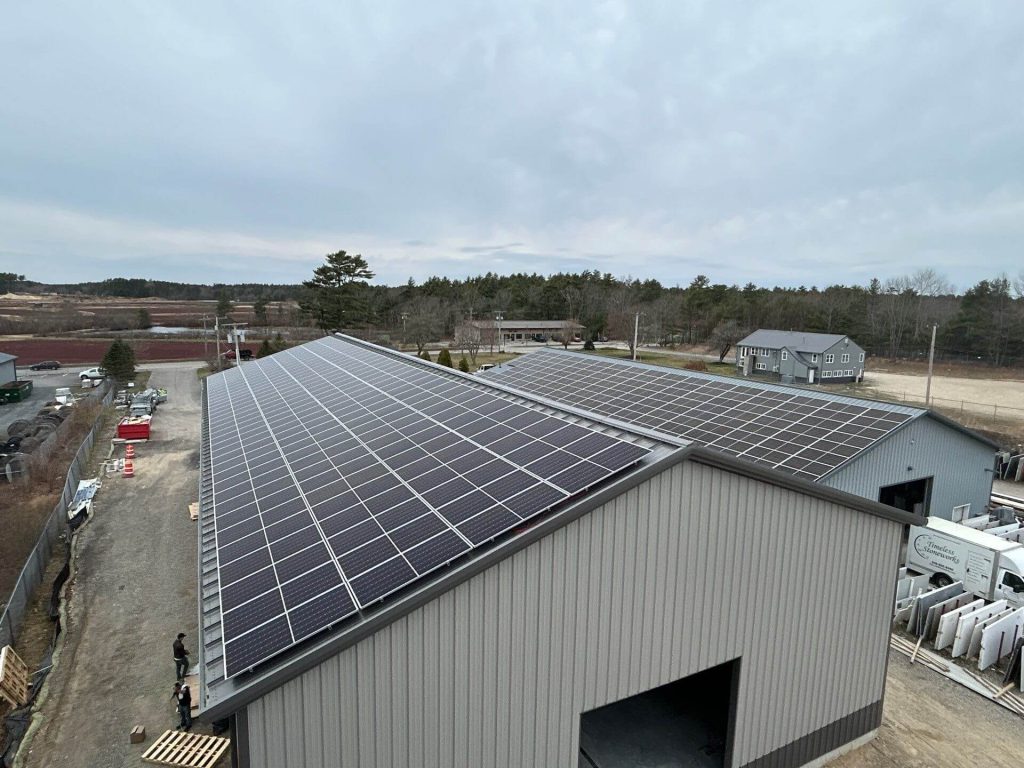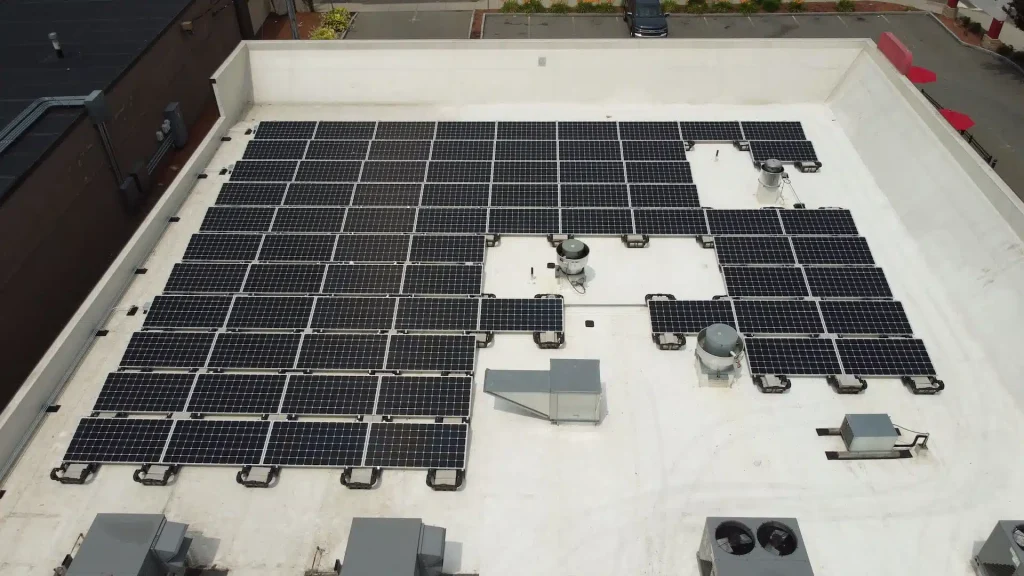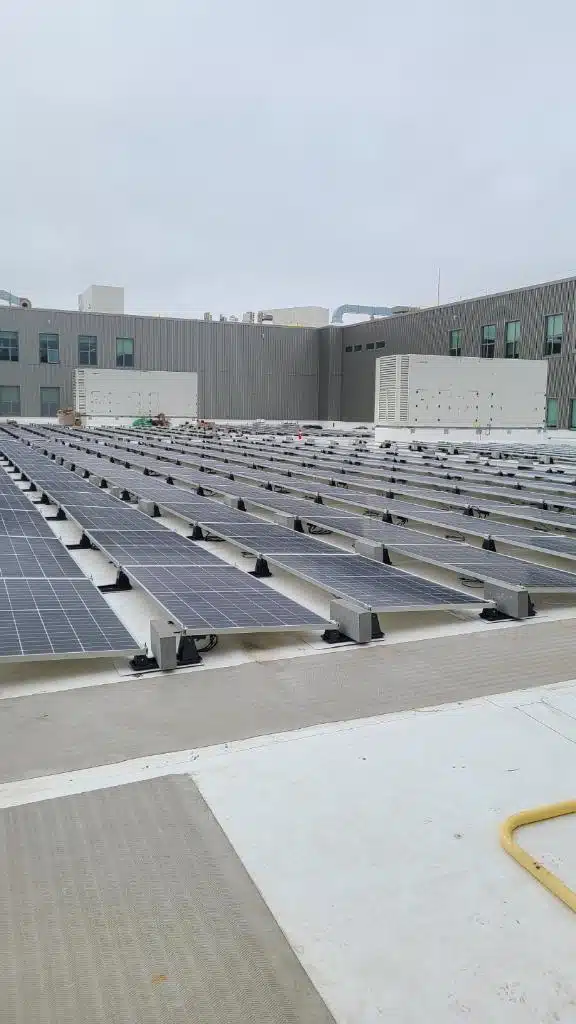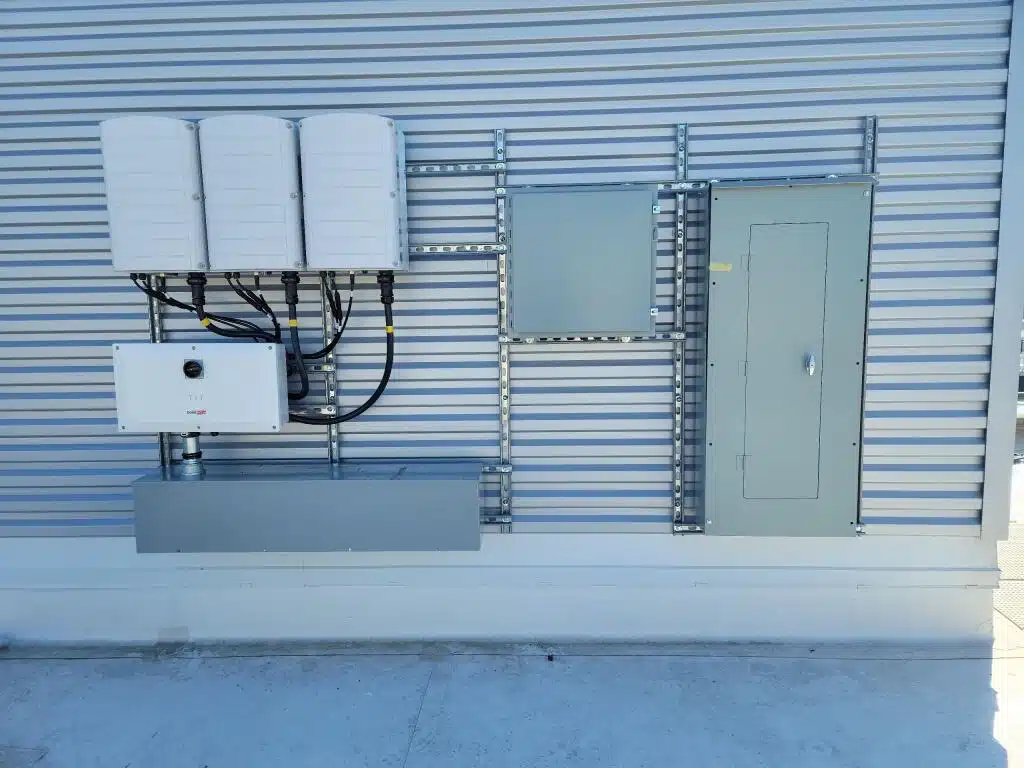Frequently Asked Questions
How does commercial solar energy improve MAs environment?
Commercial solar energy improves Massachusetts' environment by reducing greenhouse gas emissions, decreasing reliance on fossil fuels, and promoting cleaner air. This transition to renewable energy sources helps combat climate change and fosters a sustainable future for the community.
What is the average cost of commercial solar panels in MA?
The average cost of commercial solar panels in Massachusetts typically ranges from $2.50 to $3.50 per watt, depending on various factors such as system size, installation complexity, and available incentives.
What is the average return on investment for commercial solar in MA?
The average return on investment for commercial solar in Massachusetts is typically between 10% to 20% annually. This can vary based on factors such as system size, energy savings, and available incentives.
What services does a commercial solar company in MA offer?
Commercial solar companies in MA offer services such as solar panel installation, system design, maintenance, and energy efficiency consultations, helping businesses transition to sustainable energy solutions and reduce their operational costs.
What are the benefits of solar energy for businesses in MA?
The benefits of solar energy for businesses in MA include significant cost savings on energy bills, potential tax incentives, and a positive environmental impact, all of which contribute to enhanced sustainability and corporate responsibility.
Are there government incentives for commercial solar energy in MA?
Government incentives for commercial solar energy in Massachusetts include various tax credits, rebates, and grants that can significantly reduce installation costs. Programs like the Solar Massachusetts Renewable Target (SMART) and federal tax incentives further support businesses transitioning to solar power.
Who are the leading commercial solar energy providers in Massachusetts?
The leading commercial solar energy providers in Massachusetts include companies like Nexamp, BlueWave Solar, and SunPower, known for their innovative solutions and extensive experience in delivering solar energy projects to businesses across the state.
Can a commercial solar company in MA help with financing options?
A commercial solar company in MA can assist with financing options for your solar power projects. They typically offer guidance on available incentives, loans, and leasing programs to help make solar energy more affordable for your business.
How do commercial solar panels benefit Massachusetts businesses?
The benefits of commercial solar panels for Massachusetts businesses include reduced energy costs, tax incentives, and increased sustainability. By harnessing solar energy, businesses can lower their operational expenses while contributing to a cleaner environment.
Can commercial solar energy reduce energy costs for MA companies?
Commercial solar energy can significantly reduce energy costs for MA companies by harnessing renewable energy, lowering electricity bills, and providing potential tax incentives, making it a cost-effective solution for sustainable business operations.
How do commercial solar energy companies in MA operate?
Commercial solar energy companies in MA operate by assessing client energy needs, designing customized solar systems, securing permits, and installing solar panels. They also provide ongoing maintenance and support to ensure optimal performance and compliance with state regulations.
What are the environmental benefits of commercial solar energy in MA?
The environmental benefits of commercial solar energy in MA include reduced greenhouse gas emissions, decreased reliance on fossil fuels, and improved air quality. By harnessing solar power, businesses contribute to a cleaner, more sustainable energy future.
Is a commercial solar company in MA licensed and certified?
A commercial solar company in MA must be licensed and certified to ensure compliance with state regulations and industry standards. This guarantees that they have the necessary expertise to provide safe and effective solar power solutions.
How do commercial solar energy companies in MA differ from residential?
Commercial solar energy companies in MA differ from residential ones primarily in scale and complexity; they focus on larger installations, often requiring customized solutions and advanced technology to meet the energy demands of businesses compared to individual homes.
How do I find a reputable commercial solar company in MA?
Finding a reputable commercial solar company in MA involves researching local providers, reading customer reviews, and checking for licenses and certifications. Also, consider their experience with similar projects and request quotes to compare services.
How does commercial solar energy work in MA?
Commercial solar energy in MA operates by harnessing sunlight through solar panels, converting it into electricity for businesses. This system can reduce energy costs and may qualify for state incentives, enhancing sustainability and financial savings.
What are the benefits of commercial solar energy for MA businesses?
The benefits of commercial solar energy for MA businesses include reduced energy costs, tax incentives, and a positive environmental impact. By harnessing solar power, businesses can enhance their sustainability efforts and improve their bottom line.
Can a commercial solar company in MA provide maintenance services?
A commercial solar company in MA can indeed provide maintenance services. These services ensure that your solar power system operates efficiently and continues to deliver optimal performance over time.
What are the installation timelines for commercial solar in MA?
The installation timelines for commercial solar in MA typically range from three to six months, depending on project size, permitting processes, and weather conditions. Planning ahead can help ensure a smooth installation experience.
How can commercial solar energy enhance business sustainability?
Commercial solar energy enhances business sustainability by reducing reliance on fossil fuels, lowering energy costs, and minimizing carbon footprints. This shift not only promotes environmental responsibility but also positions businesses as leaders in sustainable practices.
